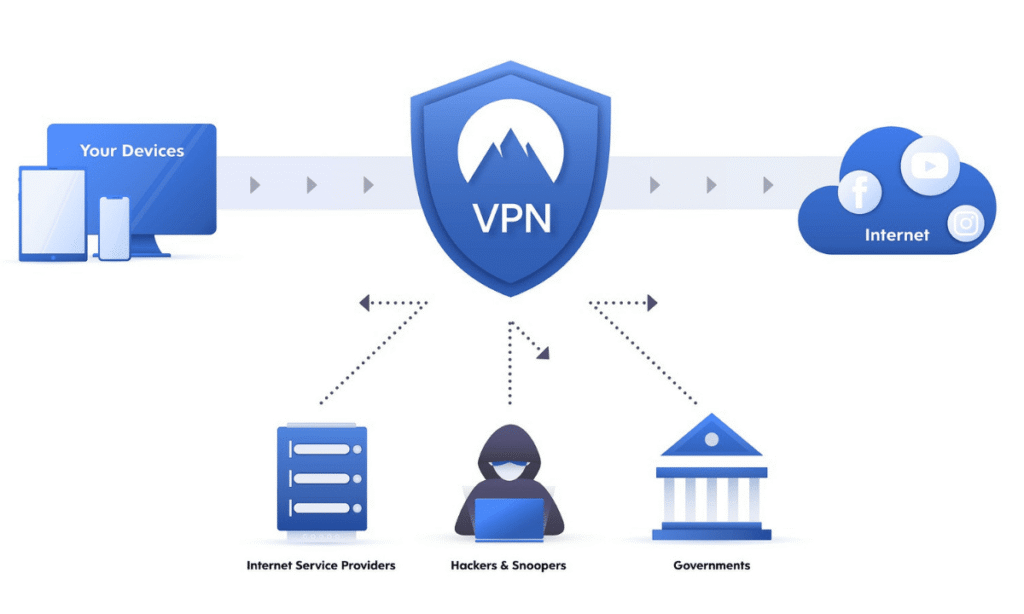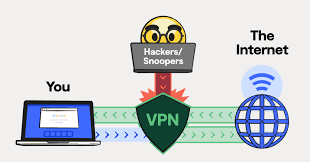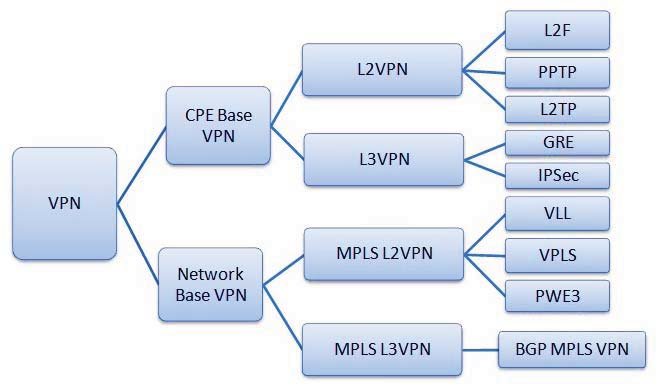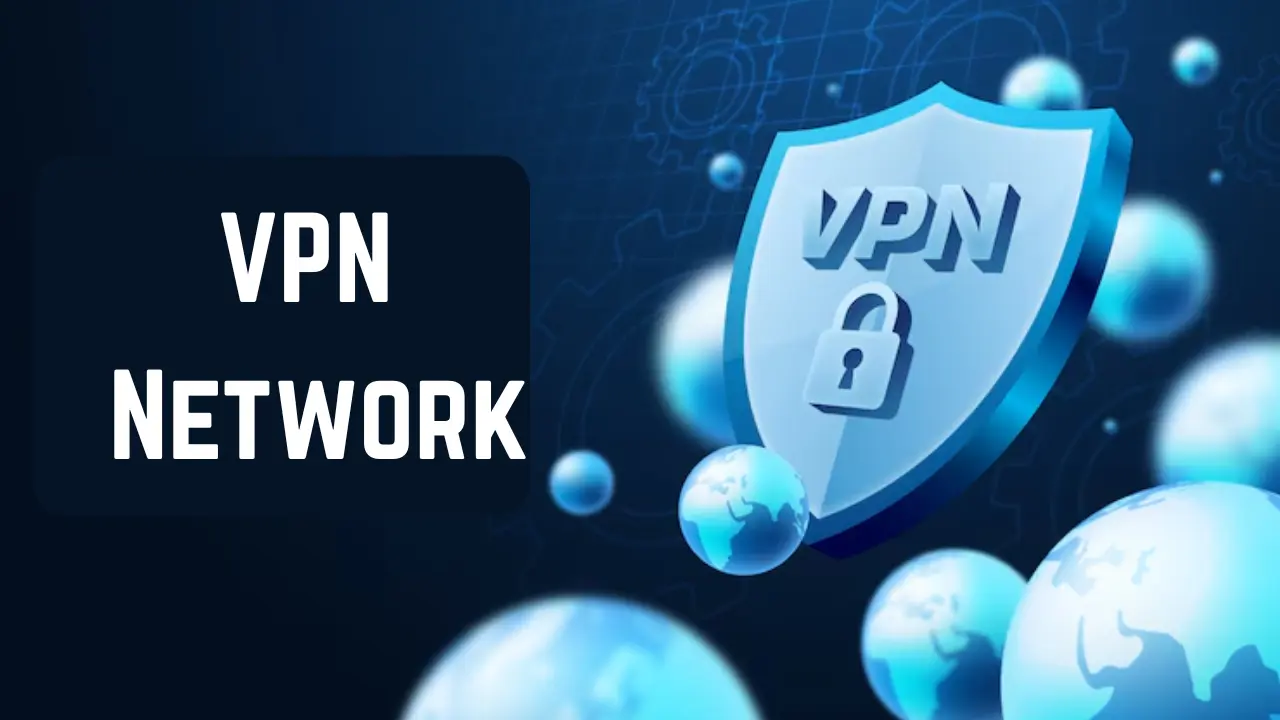A VPN Network (Virtual Private Network) is a crucial tool for anyone seeking enhanced privacy and security online. In today’s digital world, where data breaches and cyber threats are on the rise, a VPN Network acts as a protective barrier, ensuring that your online activities remain secure and private. By connecting to the internet through a VPN, your data is encrypted, protecting it from hackers and third parties. Additionally, a VPN Network hides your IP address, making it nearly impossible for websites and online services to track your physical location or browsing habits.
Whether you’re using public Wi-Fi, accessing sensitive information, or wanting to bypass geographical restrictions, a VPN Network offers a safe, encrypted tunnel for all your online communications. It is also an essential tool for remote workers and businesses, allowing secure connections to company networks from anywhere in the world. In this article, we’ll dive deeper into the workings of a VPN Network, its benefits, and how it can enhance your online security and privacy.
What is VPN Networks?

A VPN Network (Virtual Private Network) is a powerful tool designed to enhance your online privacy and security. It creates a private, encrypted tunnel between your device and the internet, ensuring that all your online activities remain hidden from potential threats. By connecting to a VPN Network, your internet traffic is routed through a secure server, which masks your real IP address and encrypts the data you send and receive.
The main purpose of a VPN Network is to protect your sensitive information from hackers, cybercriminals, and third-party surveillance. Whether you’re using public Wi-Fi at a coffee shop or browsing from home, a VPN Network secures your internet connection, making it much harder for unauthorized users to access your data.
VPN Networks are also essential for accessing content that may be blocked or restricted in certain regions. By masking your IP address and making it appear as if you are browsing from a different location, a VPN Network allows you to access websites, streaming services, and apps that are otherwise unavailable in your area.
In addition to protecting your privacy, a VPN Network helps bypass censorship, making it an invaluable tool for individuals living in countries with restricted internet access. Whether for personal or business use, a VPN Network is a reliable and secure solution to ensure your online activities are private and safe.
How VPN Networks Work
A VPN Network functions by creating a secure, encrypted tunnel between your device and the internet. When you connect to a VPN, all your internet traffic is routed through a private server, masking your real IP address. This encryption process secures your data, making it unreadable to anyone trying to intercept it, such as hackers or third-party trackers. As your internet traffic travels through the VPN server, your connection is protected from external threats, especially on unsecured networks like public Wi-Fi.
A VPN Network allows you to appear as though you’re browsing from a different location. This is done by assigning you an IP address from the VPN server, which could be in a different city or country. As a result, websites and services cannot easily track your actual location, providing enhanced privacy and anonymity.
This process not only improves online security but also enables you to bypass geo-restrictions. For example, with a VPN Network, you can access content or services that may be blocked or unavailable in your country, such as streaming platforms or certain websites. Whether you’re concerned about privacy, security, or accessing global content, a VPN Network is a powerful tool that safeguards your online activities, offering peace of mind as you browse, shop, or stream online.
Benefits of Using a VPN Network

VPN Network (Virtual Private Network) offers a secure connection to the internet, ensuring your online activities remain private and protected. Whether you’re browsing at home, accessing public Wi-Fi, or traveling abroad, a VPN can significantly enhance your online experience.
- Enhanced Online Privacy: A VPN Network masks your IP address, ensuring your browsing habits remain private. This is especially important when accessing sensitive information like personal accounts or financial data. By using a VPN, your real-world identity is hidden, adding an extra layer of privacy to your internet usage.
- Improved Security on Public Wi-Fi: Public Wi-Fi networks are often not secure, making them a prime target for hackers. By using a VPN Network, your data is encrypted, protecting your personal information from potential cyber threats. Whether you’re at a coffee shop or airport, a VPN ensures your online activities remain safe.
- Access to Geo-Restricted Content: A VPN Network allows you to access content that may be restricted in certain countries or regions. Whether you’re trying to stream movies, shows, or access websites, a VPN can make it appear as though you’re browsing from a different location, bypassing regional blocks.
- Bypass Censorship: In some countries, internet censorship limits access to certain websites or services. With a VPN Network, you can bypass these restrictions and freely access the content you need, whether it’s news, social media, or entertainment.
- Secure Remote Work: For businesses, a VPN Network offers a secure way for employees to access company resources remotely. Whether you’re working from home or on the go, a VPN ensures that your connection to sensitive company data remains encrypted and safe from potential threats.
- Reduced Online Tracking: Advertisers, websites, and third parties track your online activities for targeted ads and data collection. A VPN Network can help prevent this by masking your IP address and encrypting your traffic, reducing the risk of online tracking and preserving your anonymity.
- Prevent DDoS Attacks: Distributed Denial of Service (DDoS) attacks can disrupt your online activities by overwhelming your connection with traffic. A VPN Network can help protect you from such attacks by masking your IP address and making it harder for attackers to target you directly.
- Safe Online Banking and Transactions: When performing online banking or shopping, using a VPN Network adds an extra layer of security. By encrypting your connection, a VPN prevents hackers from intercepting your sensitive financial data, ensuring safe transactions and peace of mind.
Types of VPN Networks

A VPN Network is a powerful tool for securing your online activities. Whether you are an individual user or a business, understanding the different types of VPN networks can help you choose the best one for your needs. In this guide, we’ll explore the various types of VPN networks, their features, and how they can enhance your online security and privacy.
Remote Access VPN: A Remote Access VPN is one of the most widely used types of VPN Networks, particularly for individuals and small businesses. It allows users to connect securely to a private network from any location, using a public network like the internet. Whether you’re working from home, a café, or while traveling, a Remote Access VPN ensures your internet connection remains private and secure.
Site-to-Site VPN: A Site-to-Site VPN connects multiple networks together, typically used by large businesses or organizations with several branch offices. This VPN Network allows offices in different geographical locations to securely communicate with one another over the internet as if they were part of the same private network.
Personal VPN Services: Personal VPN Services are VPN Network solutions available to individual users. These VPN services are designed to protect your online privacy by encrypting your internet traffic and hiding your real IP address. Personal VPNs are especially useful for people who want to browse the web securely, access geo-restricted content, or avoid online tracking.
Mobile VPN: A Mobile VPN is designed specifically for mobile devices like smartphones and tablets. Unlike traditional VPNs, a Mobile VPN is optimized to maintain a secure and stable connection even when the device moves between different networks (such as switching from Wi-Fi to cellular data). This ensures continuous protection while on the go.
MPLS VPN (Multiprotocol Label Switching): An MPLS VPN is typically used by large enterprises to create a private network infrastructure over the internet. It uses MPLS technology to direct data efficiently across a network, providing faster data transmission and enhanced security for business communications. It’s especially useful for organizations with high bandwidth needs.
Choosing the Right VPN Network for You
When it comes to choosing the right VPN network, it’s essential to consider several key factors to ensure you get the best protection and performance. First, security features should be a top priority. A good VPN network offers strong encryption protocols like AES-256, which ensures that your online activities are securely protected from hackers and cybercriminals. Additionally, a no-logs policy is crucial—this means the VPN provider does not store any records of your internet activities, offering you true online privacy.
Next, speed and performance are important factors to consider. A slow VPN can be frustrating, especially when streaming content or browsing the web. Look for a VPN network that provides reliable, fast speeds without sacrificing security. Many top-tier VPN services also offer optimized servers for specific tasks, like streaming or torrenting, to enhance your experience.
Consider device compatibility. Ensure that the VPN network you choose is compatible with the devices you use, whether it’s a computer, smartphone, or tablet. Many VPN providers offer apps for various platforms, making it easier to secure all your devices.
Common Use Cases of VPN Networks
A VPN Network offers a wide range of benefits and is used for various purposes. Whether you’re an individual concerned about privacy or a business needing secure communication, a VPN Network provides a reliable solution for online security. Here are some of the most common use cases:
- Bypassing Geo-restrictions: One of the most popular reasons people use a VPN Network is to access content that is restricted based on geographic location. With a VPN, you can mask your real location and connect to a server in a different country, enabling you to access websites, streaming services, and apps that might not be available in your region.
- Securing Public Wi-Fi Connections: Public Wi-Fi networks, like those in cafes or airports, are not always secure, making it easier for hackers to intercept your data. A VPN Network encrypts your internet connection, safeguarding your personal information such as passwords and bank details while using public Wi-Fi.
- Protecting Personal Privacy: Using a VPN Network helps protect your privacy by masking your IP address, preventing websites and third parties from tracking your online activities. This is especially important when browsing sensitive information or shopping online.
- Remote Work and Secure Communication: Businesses frequently use VPN Networks to allow employees secure access to company resources while working remotely. A VPN ensures that sensitive business data remains protected, even when accessed from different locations.
Conclusion
A VPN network provides a simple yet powerful solution to safeguard your data from hackers, cybercriminals, and even prying eyes. Whether you are browsing from your home, using public Wi-Fi, or traveling abroad, a VPN network ensures that your personal information remains encrypted and protected from unauthorized access.
Not only does a VPN network enhance your security, but it also gives you the freedom to access geo-restricted content. This means you can easily bypass regional blocks on streaming services, websites, and apps, making it an invaluable tool for internet freedom.
By masking your IP address and encrypting your internet traffic, a VPN network ensures that your online identity stays private and secure. With the increasing threats to online privacy, using a VPN network is no longer just a good idea—it’s essential for anyone who values their digital safety. Invest in a reliable VPN today and take control of your online security, privacy, and freedom.
FAQs
What is a VPN Network?
A VPN Network (Virtual Private Network) is a secure connection that encrypts your internet traffic and masks your IP address. It allows you to browse the web anonymously, protecting your data from hackers and tracking entities while ensuring your privacy online.
Why Should I Use a VPN Network?
Using a VPN Network enhances your online security, protects your privacy, and allows you to access geo-restricted content. Whether you’re using public Wi-Fi or browsing sensitive information, a VPN Network ensures your data remains secure.
Is a VPN Network Safe to Use?
Yes, a VPN Network is safe to use, as long as you choose a trusted provider. It encrypts your data, protecting it from hackers, ISPs, and government surveillance. However, it’s essential to select a VPN service with strong security protocols and a no-logs policy to ensure your privacy is maintained.
Can I Use a VPN Network on Any Device?
Yes, most VPN Networks are compatible with a wide range of devices, including smartphones, laptops, tablets, and desktops. Whether you’re using Windows, macOS, Android, or iOS, you can easily set up and use a VPN on your device for enhanced security and privacy.
Can I Use a VPN Network for Torrenting?
Yes, you can use a VPN Network for torrenting. In fact, using a VPN is highly recommended when downloading torrents, as it encrypts your traffic, preventing your ISP or third parties from monitoring your activity. Just ensure that the VPN service you choose allows torrenting on its servers.

